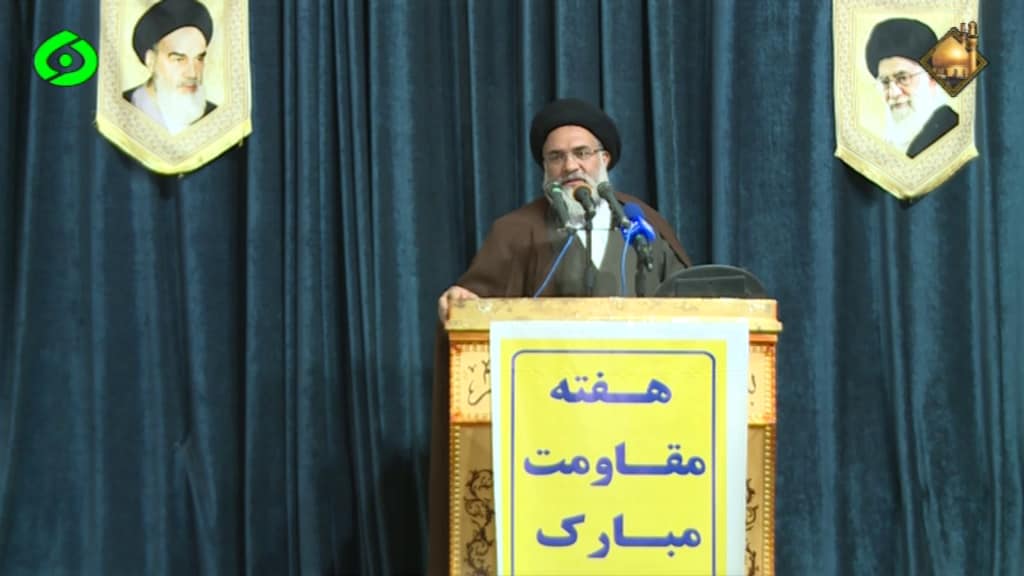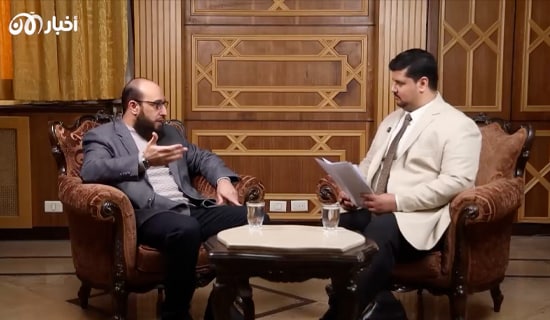
Egyptian philosopher Mourad Wahba said in an October 29, 2019 interview on Ten TV (Egypt) that religious fundamentalism has spread quickly in the Middle East, Africa, and Asia because these regions lack secular movements. He said that fundamentalism must be criticized in order to create an environment that a new movement can develop in, and he expressed criticism of those who fight terrorism without simultaneously fighting religious fundamentalism. In another interview on November 5, Wahba said that the peace agreement between Egypt and Israel requires all relations to be normalized, but that Egyptians' pickiness about what constitutes normalization is an indication that they do not want to normalize relations at all. Arguing that Egyptians need to live by the agreement that they signed, he said that grudges Egyptians hold against Israel were only valid arguments against normalization before the peace agreement was signed.
Ten TV Interviewer: "Why has religious fundamentalism thrived in the Middle East more than in other regions of the world?"
Mourad Wahba: "Bravo! Very good. This is an essential question. [Religious fundamentalism] has spread quickly in countries that lack secularism, mainly in Africa and in Asia. In Europe, it took some time because there is a secular movement, but in Africa and Asia, there is no such secular movement. This is why fundamentalism spread there easily. I have been frequently invited to Africa and Asia and I have witnessed the rise of fundamentalism – especially Islamic fundamentalism in Africa and Asia.
[...]
"Fundamentalism has shattered the world and wrecked the state. This is why it must be criticized. When it is criticized, an environment is created for discourse about a new movement. This new movement needs, first and foremost, a clear ideology. This will enable it to develop into a movement. As of now, there is no secular movement [in the region]. There is, however, a secular ideology that is trying to turn into a movement in order to replace the movements of religious fundamentalism. So far, nobody has targeted religious fundamentalism at its core. We ignore it and settle for fighting terrorism. But this is an illusion. Whoever says that he is fighting terrorism must also say that he is fighting religious fundamentalism as well. If you reject this part and settle for fighting terrorism, it has no meaning and you will not achieve anything..."
Ten TV Interviewer: "This is what the country is trying to do with the renewal of religious discourse."
Mourad Wahba: "Exactly! They are running away. Those who work on the renewal of religious discourse are running away from criticizing religious fundamentalism. They concentrate on [fighting] terrorism. They use general slogans like: 'We oppose terrorism! They have no religion! We are the ones that have religion!' These are all meaningless words. You must define exactly who the enemy is.
[...]
"A peace agreement was signed in 1979 between Egypt and Israel. The third clause in the third article of the agreement says that all relations will be normalized. But, of course, we started to get picky regarding what 'normalization' is. What does it mean? This means that we refuse to normalize cultural relations [with Israel].
[...]
"Universities in Israel are just like universities in Egypt or England. They are open [to others] because knowledge knows no geographical boundaries."
Ten TV Interviewer: "Yes, but even you said that the issue is sensitive because of the past."
Mourad Wahba: "There are remnants from the past, yes..."
Ten TV Interviewer: "Every Egyptian family has a martyr as a result of our many wars against the Israeli enemy. This is why I cannot visit a university in Israel the same way I visit a university in Brazil, for example."
Mourad Wahba: "This was only a valid argument before the peace agreement was signed.
[...]
"You cannot sign a peace agreement and then say: 'But be advised, I still live in a time prior to the agreement...' You can't do that. If you sign a peace agreement, you should live by it."













